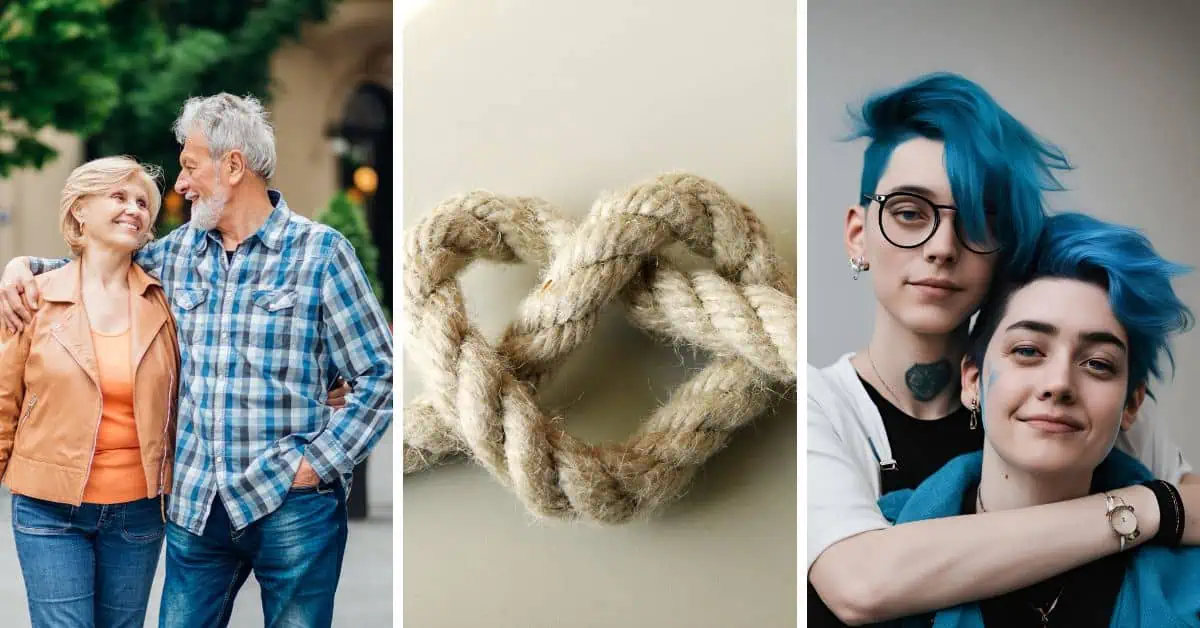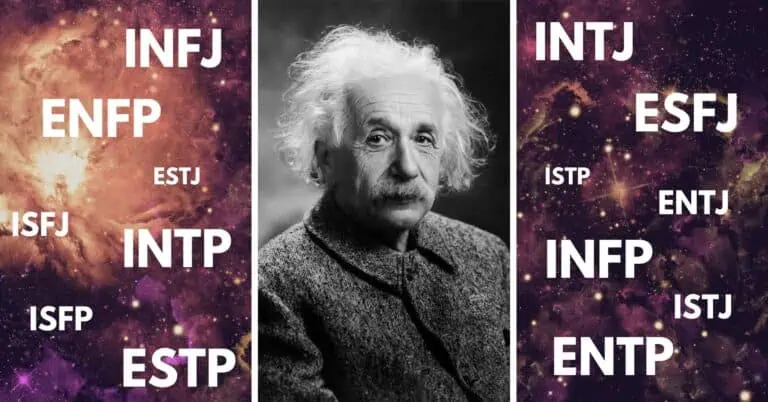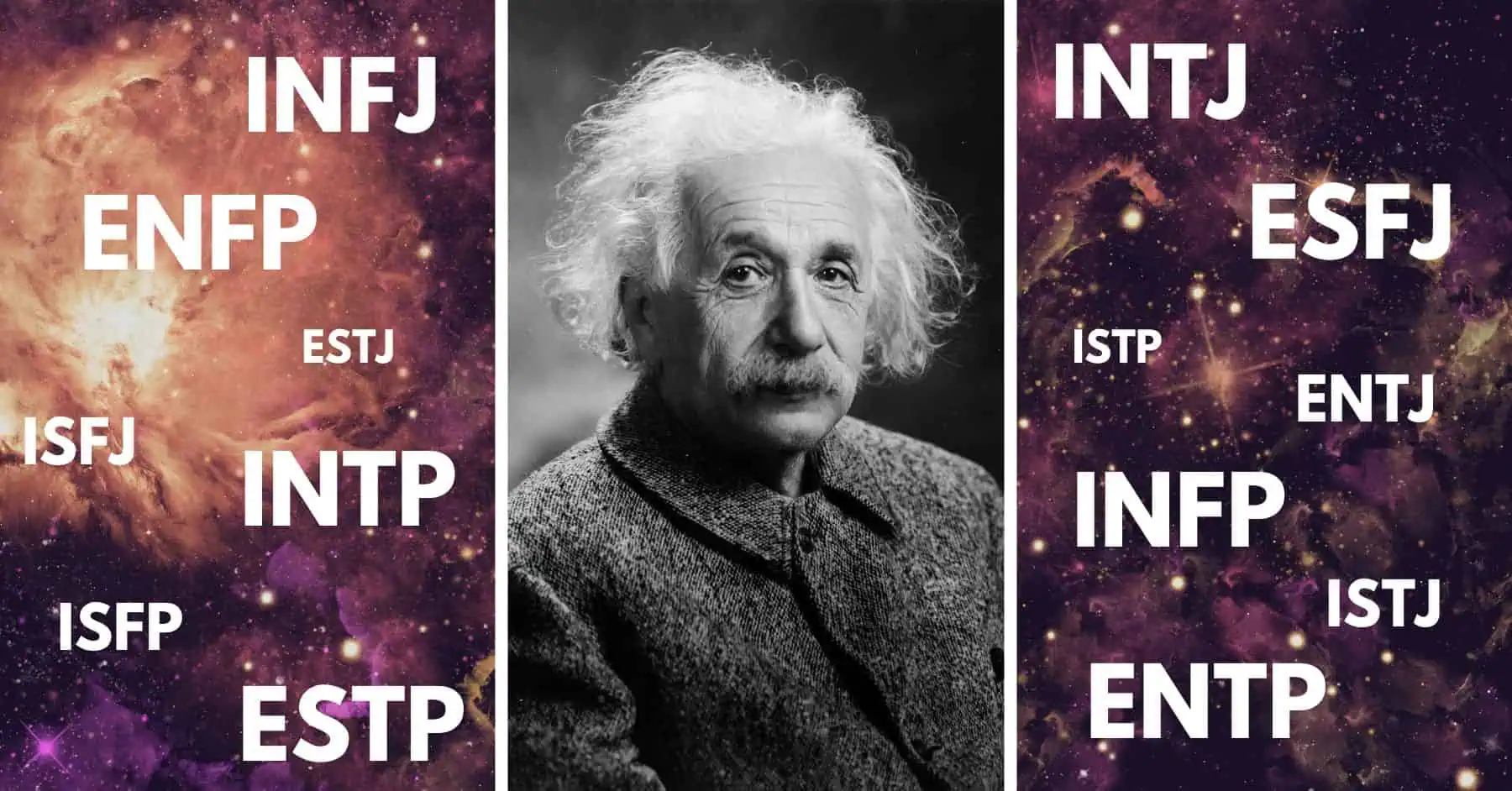How You Handle Criticism, Based On Your Myers-Briggs® Personality Type
Criticism can be tough for anyone, I know I’m personally not a big fan. Who likes to be told they’ve done something wrong or failed? Yet while all of us might feel a little uneasy with criticism, some of us see it as fuel for growth while others see it as a personal attack.
I decided to survey over 90,000 people from my email list, social media following, and clients to figure out if there were any trends among the 16 Myers-Briggs® personality types and the ways they handled criticism. I asked them the question, “Do you become defensive when given criticism?” and they could choose from the following answers: “Yes,” “Often,” “Rarely,” or “No.”

Based on their responses, I ordered this list from most to least likely to become defensive to criticism. The percentages are based on the number of respondents who answered “Yes” and “Often.”
Before we really dive into the results, I want to thank everyone who took part in this. We’re currently at 3,575 respondents (and if you’d like to participate, you can take the survey here). Your input helps us to gain a more nuanced and accurate view of the personality types and this article couldn’t exist without you!
Not sure what your personality type is? Take our new personality questionnaire here. Or you can take the official MBTI® here.
Who Handles Criticism Best? The Myers-Briggs Personality Types Ranked

Table of contents
- Who Handles Criticism Best? The Myers-Briggs Personality Types Ranked
- The Thinking/Feeling Difference:
- #1: The ENTP
- #2: The ENTJ
- #3: The INTJ
- #4: The ESTP
- #5: The ESTJ
- #6: The ISTP
- #7: The INTP
- #8: The ISTJ
- #9: The ESFJ
- #10: The ESFP
- #11: The ISFP
- #12: The INFJ
- #13: The ENFP
- #14: The ISFJ
- #15: The ENFJ
- #16: The INFP
- What Do You Think?
Estimated reading time: 27 minutes
The Thinking/Feeling Difference:
The biggest pattern I noticed when I was surveying the types was that Feeling types had a tougher time with criticism than Thinking types. You can see the difference in the chart below:

Feeling types tend to interpret everything through a personal lens, whereas Thinking types tend to step outside of the situation to see things from a detached perspective. Being too personal gets in the way of the logic for Thinking types, and therefore they try to avoid it at all costs. Being personal helps Feeling types empathize and understand emotional undercurrents and values, so F types are likely to “step in” and see everything through the lens of how it impacts them and others personally. Because of this, criticism hits especially hard for Feeling types. This doesn’t mean that Thinking types are immune to criticism, as you can see from the chart above. Most people struggle with criticism, especially if it’s deeply personal or delivered in a condescending, confrontational, or mean-spirited way. And, of course, maturity plays into this as well.
#1: The ENTP
ENTPs were the type least likely to become defensive when receiving criticism. Only 9.09% of the ENTP respondents said they become defensive, while the majority (90.91%) said they rarely or never became defensive.
Why is this?
ENTPs tend to approach life with curiosity, objectivity, and a certain detachment that keeps criticism from really hitting at the heart of them. Rather than feeling like they’ve been personally attacked, they see it as raw data to explore. What’s the truth behind the criticism? What opportunities does this present to them? Are there any arguments they should consider?
For an ENTP, criticism is just more exciting information to explore and experiment with to get closer to the truth of something. And because ENTPs tend to be natural arguers, they’re used to verbally sparring with people anyway. Because ENTPs are so fixated on radical honesty, they may see it as getting one step closer to the truth of the matter.
Tips for ENTPs:
- Pause Before Responding: Take a moment to fully absorb the feedback before launching into a debate.
- Look for Opportunities: View criticism as raw data to refine your ideas and approach.
- View It as a Challenge: Treat criticism as another problem to solve or opportunity to improve.
Find out more about ENTPs: The Dark Side of the ENTP Personality Type
#2: The ENTJ
Tough-minded and strategic, ENTJs see criticism as an avenue for growth more than a personal attack. Only 18.18% of ENTJs said they get defensive with criticism, while the other 81.82% said they rarely or never did.
These “Directors” hate sugarcoating and love anything that gets right to the point. When someone gives them criticism they’re more likely to be intrigued by it than deeply offended. This is especially true if the person giving the criticism is someone who is soft-spoken, careful, and cautious. It might excite the ENTJ to be given criticism by such a person because it’s cutting past the propriety and “fluff” and getting right to the heart of the matter, which is where true growth lies.
“I don’t mind criticism at all,” one ENTJ told me, “In fact, I usually like it because with most people I know, it’s when they’re being the most honest, even if it’s not exactly “the truth” all the time. Sometimes I need a kick in the pants, and other times they’re just being emotional, but either way, if they hold it in we can’t solve anything.”
Tips for ENTJs:
- Focus on the Big Picture: Consider how the feedback can help you achieve your long-term goals.
- Evaluate the Source: Give more weight to criticism from those you respect and trust.
- Stay Open-Minded: Even harsh feedback can offer valuable insights if you’re willing to listen.
Find out more about ENTJs: 15 Times Tommy Shelby Exemplified the ENTJ Personality Type
#3: The INTJ
36.36% of INTJs said they get defensive when receiving criticism, while 63.64% said they rarely or never do. “Most of the time I see criticism as something to analyze logically, and my emotions don’t really get involved,” said one INTJ respondent, “but if it’s a personal attack that’s different. I guess it matters what the motive is.”
INTJs often see criticism as a stepping stone towards progress. This is especially true in a work context, where constructive criticism can make a task more effective and successful. However, when it comes to personal relationships, they can feel a little more vulnerable. INTJs tend to feel things deeply even though they may not show it. Criticisms about their character or their effectiveness as a partner, friend, or family member, can hit hard. But they’re still likely to detach from their emotions and look at the situation from an analytical, logic-driven perspective to try to figure out the truth of the matter before emotionally responding.
I know for me personally as an INTJ, I might initially feel defensive when given criticism, but I won’t act on those feelings. Instead, I’ll try to detach from my feelings and look at the facts, the other person’s perspective, and my own actions. As with all criticism, motives do matter. If the criticism was a personal attack then I will try to consider what led to it and what that means for the relationship. If it was meant to be constructive to the relationship as a whole then I will try to take it with the good intent it was delivered. That’s just me, but based on the comments from INTJ respondents, it seems like a fairly common INTJ perspective.
Tips for INTJs:
- Analyze the Motive: Consider the intent behind the criticism—was it meant to help or harm?
- Focus on the Big Picture: Consider how the feedback can help you achieve your long-term goals.
- Remember Your Values: Consider how the criticism aligns with your core beliefs.
Discover more about INTJs: The Childhood Struggles of INTJs
#4: The ESTP
ESTPs are bold, action-oriented types who approach life with a certain “devil may care” attitude. 37.50% of ESTPs in our survey reported that they become defensive when receiving criticism, while the remaining 62.50% said they rarely or never do.
Why do ESTPs respond this way?
For ESTPs, life is about seizing the moment and making things happen. They rely on their Extraverted Sensing (Se) to stay alert to the world around them and take advantage of opportunities. They expect challenges and setbacks and they try to stay cool-headed when anything unexpected comes their way. Often, ESTPs often see criticism as just another challenge to overcome. If someone points out a flaw in their approach or suggests they need to change course, the ESTP is more likely to see it as a puzzle to solve rather than a personal attack.
For example, if an ESTP is criticized for being too impulsive, their initial reaction might be to defend their quick decision-making. But rather than dwelling on the criticism, they’ll likely assess the situation, consider whether the feedback has merit, and adjust their actions accordingly—without taking it too personally. This ability to stay in the present moment and focus on the facts rather than their feelings allows them to handle criticism with a level-headed approach, even if they initially feel a sting.
Unhealthy ESTPs are a different story. They tend to react impulsively and get into animated arguments about criticism rather than learning from it. This is especially true of ESTPs in a Se-Fe loop, who are more reactive to their environment and their interactions than healthy ESTPs would be.
Tips for ESTPs:
- Assess the Merit: Quickly determine if the criticism has practical value.
- Stay Cool-Headed: Don’t let impulsive reactions take over—respond thoughtfully.
- View It as a Challenge: Treat criticism as another problem to solve or opportunity to improve.
#5: The ESTJ
Practical and efficient, ESTJs have an objective and detached approach to most things in life. Like ESTPs, 37.50% admitted to becoming defensive when criticized, while 62.50% said they rarely or never do. One ESTJ commented, “I can take constructive criticism if it is from a mentor, friend, or colleague I respect; otherwise, no thank you.
ESTJs lead with Extraverted Thinking (Te), which means they’re focused on getting things done in the most efficient way possible. They value productivity and effectiveness, so when someone criticizes their methods or decisions, they can see it as A) an attack on their competence or character, or B) a much-needed boost to being more effective. Often, ESTJs try to step back from the situation and look at the facts and history. If someone is criticizing a perceived character flaw, they’ll look at past experiences to try to determine if the other person’s perspective is accurate. If they’re constructively criticizing a work project, then the ESTJ will likely be interested to see if the criticism could lead to better results and performance. And better results are always something ESTJs are interested in.
Outcomes are everything to ESTJs. If taking the criticism in stride will spark a better outcome, they’ll be more likely to accept it. But if the criticism seems withering and personal, the ESTJ might feel overwhelmed by it. Because ESTJs have inferior Introverted Feeling, they can feel a little out of touch with their own emotions. Harsh criticism may feel painful to them, but because they’re so used to sweeping their emotions under the rug, they may not know how to process them until they can get alone and have some time to dwell on the issues. Unhealthy ESTJs tend to have an arrogant streak, and may be more confrontational or reactive to criticism as well.
Tips for ESTJs:
- Consider the Outcome: Will accepting the criticism lead to better results? Focus on that.
- Check the Facts: Evaluate whether the feedback is based on accurate information.
- Take Time to Process: Give yourself space to reflect on emotional reactions before responding.
#6: The ISTP
42.37% of ISTPs reported that they become defensive when criticized, while 57.63% said they rarely or never do. As introverted thinking types, ISTPs are likely to argue or analyze the situation, trying to get to the truth of the matter. They’ll take apart the criticism and try to look at the facts and details. Constructive, calm criticism they’ll respond to with a curious, analytical approach. Withering personal attacks can hit them hard. Because ISTPs have inferior Extraverted Feeling, they often have a sensitivity to how others’ perceive them and how they are affecting others emotionally. While they may seem detached and cool-headed, they are human, and they do care about their place within social groups. A personal attack or criticism can make them feel overwhelmed, stressed, and more emotional than usual. “Constructive criticism is good,” one ISTP said in the comments, “but if it’s personal I need a lot of time to process that.”
Tips for ISTPs:
- Dissect the Feedback: Break down the criticism logically to understand its validity.
- Stay Objective: Keep emotions in check by focusing on the facts and details.
- Give Yourself Time: If the criticism feels personal, take time alone to process it.
Discover more about ISTPs: 12 Amazing Fictional ISTPs
#7: The INTP
51.51% of INTPs in our survey reported that they become defensive when receiving criticism, while 48.49% said they rarely or never do.
Why do INTPs react this way?
INTPs lead with Introverted Thinking (Ti), which means they are constantly dissecting and analyzing information to understand how things work. When criticized, especially about their ideas or reasoning, INTPs might initially become defensive because they’ve likely spent a great deal of time carefully constructing their thoughts. For example, if someone challenges an INTP’s logic or suggests that their conclusions are flawed, their first reaction might be to argue back, defending their reasoning with a barrage of evidence and analysis.
However, INTPs are also driven by Extraverted Intuition (Ne), which gives them the ability to explore multiple perspectives and possibilities. This means that once the initial defensiveness passes, they are usually open to re-evaluating their stance if the criticism has merit. They might mull over the feedback, dissecting it to see if it could enhance their understanding or lead to a new, intriguing insight.
If criticism is coming from someone they care about or if it seems deeply personal, it can sting fiercely. INTPs, like ISTPs, have inferior Extraverted Feeling. They can easily feel vulnerable if their relationships feel threatened or if they feel they’ve made a huge personal mistake. While they may not react to a personal attack immediately, they may find themselves becoming more and more stressed, retreating from people, and feeling more vulnerable and emotional than usual.
Tips for INTPs:
- Analyze Before Reacting: Consider the logic behind the criticism before launching into an argument.
- Keep an Open Mind: Be willing to re-evaluate your stance if the feedback has merit.
- Take Some Time Alone: If you’re feeling overwhelmed, take some time alone to breathe deeply and process. Mean-spirited criticism is not okay, even if you can learn something from it.
Find out more about INTPs: The Top 3 Best Matches for the INTP Personality Type
#8: The ISTJ
52.50% of ISTJs in our survey admitted to becoming defensive when criticized, while 47.50% said they rarely or never do.
What’s behind the percentages?
ISTJs are pragmatic, sensible types who approach life with a grounded perspective. When someone criticizes them, they might see it as an attack on their competence or effectiveness. But chances are, they’re not going to get into a shouting match right away. Instead, they’ll probably become quiet and try to look back on the history of the situation. First, they’ll want to know if the criticism is true. Facts are what will matter to them here. Then, is it logical? ISTJs love anything that will make them more effective in the real world. If the criticism is constructive and could lead to a better outcome, they’ll likely come around to appreciating it. And lastly, how do they feel about it? While ISTJs might appear stoic and cool-headed, they actually feel things very deeply. If criticism is personal or withering they may need some time alone to process their feelings around it. Sharp personal attacks may result in a more emotional response from the ISTJ; but again, they tend to be reserved types. You’re unlikely to get an ISTJ into a heated, emotional screaming match and more likely to get a calm, carefully delivered response with a bit of restrained emotion on the side.
Tips for ISTJs:
- Look at the History: Reflect on past experiences to determine if the criticism is valid.
- Focus on Improvement: If the feedback could lead to better outcomes, consider it carefully.
- Allow Yourself to Feel: Acknowledge your emotional reaction, but don’t let it drive your response. If someone is being mean-spirited or cruel, don’t accept their criticism until they can approach you in a calm, respectful manner.
Find out more about ISTJs: The Childhood Struggles of ISTJs
#9: The ESFJ
58.82% of ESFJs reported that they become defensive when criticized, while 41.18% said they rarely or never do. ESFJs are very relationship-focused. Where they stand with people matters to them, and criticism can feel especially debilitating because of that.
For example, if an ESFJ is criticized for being too overbearing, their first reaction might be to defend their actions, explaining how they were just trying to help or keep things running smoothly. If an ESFJ is surrounded by people who take their side, chances are they’ll feel justified in being offended by this.
For the most part, criticism tends to feel awful to ESFJs. They focus a lot on how people feel and tend to pride themselves on making a good impression. When someone is disapproving of them, it can feel crippling. And sometimes they don’t feel like they deserve it because they’ve done so much for their relationships.
But healthy ESFJs also rely on Introverted Sensing (Si), which helps them draw on past experiences to guide their actions. If they’ve faced similar criticism before, they’ll take it to heart and work on adjusting their behavior to avoid future conflicts. They are often willing to make changes if it means preserving relationships. But if the criticism feels harsh or unwarranted, it can shake their confidence, leading to a defensive reaction as they struggle to reconcile the feedback with their strong desire to have good relationships.
Tips for ESFJs:
- Consider the Intent: Was the criticism meant to help? Focus on the constructive aspects.
- Reflect on Past Experiences: Use your history to guide how you process the feedback.
- Take It in Stride: Remember, your worth isn’t defined by one piece of criticism.
Discover more about ESFJs: Understanding ESFJ Rage
#10: The ESFP
61.54% of ESFPs reported that they become defensive when criticized, while 38.46% said they rarely or never do.
Lively and energetic, ESFPs want to live each day to the fullest. They focus on creating positive experiences and spreading joy; making the most of the moment and helping others to do so as well. While they may not admit it, this process can take a lot of energy. When people criticize their efforts, they can feel like all their energy and hard work is being dismissed or ignored. Criticism can feel like an unwelcome disruption, especially if it seems to undermine their efforts to make the moment count.
For example, if an ESFP is criticized for being too reckless or not taking things seriously enough, their first reaction might be to push back, defending their spontaneous, go-with-the-flow approach. After all, they see their ability to live in the moment and embrace opportunities as one of their greatest strengths. They might feel that the person criticizing them is just too uptight or missing out on the joys of life.
ESFPs also have really intense emotions and deeply-held values. If someone criticizes them in a harsh or personal way, they may immediately react, being guided by their inner feelings and sense of right and wrong. However, this doesn’t mean that ESFPs are all about reacting without thinking. Often, after some time to cool down, they will reflect on the situation and try to decide whether the criticism was fair or mean-spirited. It’s important to give criticism to ESFPs in a calm, constructive, and empathetic way rather than framing it in a condescending, passive-aggressive, or harsh tone. Be clear and direct, but be kind.
Tips for ESFPs:
- Don’t Take It Personally: Try to separate the feedback from your sense of self.
- Focus on the Positive: Look for ways the criticism can help you improve.
- Take Time to Reflect: Give yourself a moment to process before reacting out loud.
#11: The ISFP
61.82% of ISFPs in our survey reported that they become defensive when criticized, while 38.18% said they rarely or never do.
ISFPs are sensitive, deeply-feeling individuals who place a high value on personal freedom and authenticity. They have a strong inner moral compass and are deeply connected to their own values and feelings. When criticized, especially if it feels like an attack on their character, ISFPs can become quite defensive.
“I hate criticism,” one ISFP commented, “but what matters is intent. If the other person is genuinely trying to help then I’ll think it over and try to course-correct. If it’s delivered harshly or with ill-intent, I’m done.”
Another ISFP commented, “I am my own worst critic, but I’m trying to improve with it. I take criticism badly at first and might feel upset depending on what it was about, and when I was younger I’d just cut people off. But now I try to look at it from different angles afterwards and it can help. I think it’s called maturing.“
ISFPs will prioritize time to look inwards and decide whether the criticism is fair and matches their own personal history. If the criticism comes from someone they care about or if it’s delivered in a gentle, constructive way, they’re more likely to take it to heart. They might not respond immediately, but over time, they’ll reflect on the feedback and consider how it aligns with their values. Ultimately, ISFPs want to stay true to themselves, but they’re also willing to make adjustments if it means improving their relationships or contributing to the well-being of those they love.
Tips for ISFPs:
- Remember Your Values: Consider how the criticism aligns with your core beliefs. Don’t allow anyone to be disrespectful or cruel to you. Take space if that is happening.
- Don’t Rush to React: Give yourself space to process the feedback emotionally.
- Focus on Growth: Use the feedback as a tool for personal and creative development.
Discover more about ISFPs: Living Without Limits: Why ISFPs Need Freedom to Thrive
#12: The INFJ
67.82% of INFJs reported that they become defensive when criticized, while 32.18% said they rarely or never do. These “Mystics” are deeply introspective, empathetic individuals who are driven by a strong sense of purpose. They have a clear vision of how they want to live their lives and are usually committed to making a positive impact on the world. Criticism, especially if it feels like it’s attacking their intentions or values, can hit INFJs hard.
“I have a really hard time with criticism,” one INFJ commented, “at first, I pull away and get really quiet. I need some time to myself to process. Shouting or yelling will immediately make me pull away. I need to get away and process, and cry sometimes (I’m not gonna lie).”
Another INFJ commented, “I think INFJs struggle with criticism because we make it about our worth. But I’ve worked a lot on my self-esteem and self-worth, and now I can separate feedback from my worth and look at it objectively.”
Many INFJs mentioned that they dealt with an excessive amount of criticism growing up. They had ideas, insights, and predictions that others didn’t take seriously. They were told to “hurry up,” “be more realistic,” or “be more extroverted.”
Because criticism is such a painful part of many INFJ’s childhood experiences, it can immediately feel like a depressing reminder of not being “enough.” But with some re-framing and a quiet, calm atmosphere they can process more effectively. After the initial sting of the criticism wears off, they are likely to spend a lot of time thinking it over, trying to understand the other person’s perspective. They’ll ask themselves if there’s truth in the feedback and how they can use it to improve. While INFJs may be sensitive to criticism, they’re also committed to becoming the best version of themselves, which often leads them to eventually embrace constructive feedback, even if it was hard to hear at first.
Tips for INFJs:
- Remember Your Worth: Don’t let others’ criticisms of you destroy your self-worth and value. Remember that this is just one perspective. Try to hear it without letting it overwhelm you.
- Consider the Source: Give more weight to feedback from those who understand you. Don’t tolerate cruel or mean-spirited criticism.
- Use It for Growth: Even if it’s painful, look for ways the criticism can help you improve.
Find out more about INFJs: September Bucket List Ideas for INFJs
#13: The ENFP
68.75% of ENFPs reported that they become defensive when criticized, while 31.25% said they rarely or never do.
Why do ENFPs react this way?
ENFPs are deeply passionate about their ideas and values. They approach life with a sense of wonder and possibility, always looking for new ways to grow and make a difference. However, when criticism comes their way, it can feel like a blow to their creative spirit and personal vision.
One ENFP respondent shared, “I think about it in terms of growth. It may hurt at first but if there’s something to learn & grow from, I’m better for it so I’m grateful. Perhaps not initially, but after processing.” This highlights a common theme among ENFPs: the initial sting of criticism is unavoidable, but with time, they often find a way to reframe it as an opportunity to grow and improve. They are driven by a desire to evolve, so even though criticism can be painful, it can also be a catalyst for positive change.
Another ENFP offered a practical coping strategy: “Pretend it’s about someone else.” This approach helps them to create a bit of emotional distance, helping them to view the feedback more objectively. This strategy might seem strange, but others commented that this approach actually works. By stepping outside of themselves, they can better assess the validity of the criticism without feeling personally attacked.
Yet, many ENFPs also acknowledge that managing their initial emotional response to criticism is a work in progress. One ENFP commented, “I have to work at not reacting negatively. But I’ve spent a lot of time on this, and working on my attachment style too, and realized that if I can have a healthy sense of self-worth and a healthy regard for the truth, I can come at it with less emotion.”
Tips for ENFPs:
- Pause and Breathe: Take a moment to calm your initial emotional response. If the person is being confrontational or aggressive, remove yourself from the situation until they can speak in a calm, respectful way.
- Consider the Growth Potential: Reflect on how the feedback could help you improve.
- Stay Curious: Approach the criticism with the same curiosity you bring to new ideas.
Discover more about ENFPs: How ENFPs Say “I Love You”
#14: The ISFJ
70.37% of ISFJs reported that they become defensive when criticized, while 29.63% said they rarely or never do. “Protectors” are caring, conscientious individuals who work tirelessly to support the people they love and their communities. They are often their own harshest critics, holding themselves to high standards in everything they do. Because of this, when criticism comes from the outside, it can feel like a deeply personal attack.
One ISFJ explained, “We’re sensitive to criticism because we constantly are trying our best and are self-critical by nature anyway. So when someone criticizes us, we feel attacked.” This reflects the deep sense of responsibility that ISFJs carry. They invest a great deal of time and energy into making sure everything runs smoothly, and criticism can feel like a personal indictment, even if it’s well-intended.
Another ISFJ shared, “I’m not the best with criticism, but I’m trying to work on that. And it also depends on whether it’s constructive criticism or just being an a**hole disguised as honesty.” This comment highlights an important distinction for ISFJs: the intent behind the criticism. When feedback is given constructively and with kindness, ISFJs are more likely to take it to heart and use it to improve. But if the criticism feels harsh or unwarranted, it can be deeply hurtful and lead to a defensive reaction.
Many ISFJs also struggle with the idea of criticizing others, as they know how painful it can be to receive criticism themselves. “I am very sensitive to criticism also. I also don’t criticize others often because of how I feel when I am criticized,” one ISFJ commented. This empathy and understanding of others’ feelings is a core part of the ISFJ’s nature, but it can also make them more vulnerable when the tables are turned.
However, ISFJs are not without their coping mechanisms. One ISFJ mentioned, “To help me through, I often think how I tried my best and that there are some people who aren’t even phased by criticism, and try more to think like them.” By reminding themselves that they did their best and trying to adopt a more detached perspective, ISFJs can begin to process criticism in a way that is less emotionally charged.
Tips for ISFJs:
- Remind Yourself of Your Efforts: Acknowledge that you’ve done your best before taking the criticism to heart.
- Consider the Intent: Was the feedback meant to help? Focus on the constructive aspects.
- Give Yourself Grace: It’s okay to feel hurt—allow yourself time to process before responding.
Discover more about ISFJs: ISFJs and Their Compatibility with Every Myers-Briggs® Personality Type
#15: The ENFJ
71.42% of ENFJs reported that they become defensive when criticized, while 28.58% said they rarely or never do.
ENFJs are empathetic and relationship-focused. Taking care of the people around them is a major part of who they are. And they tend to make big sacrifices to be the kind of generous and empathic people they are. Because of this, criticism can feel particularly personal. It can feel initially ridiculous to the ENFJ, because they do work so hard at trying to take care of everyone (including, likely, the person giving the criticism).
One ENFJ shared, “Constructive criticism is hard, but I’ve come to appreciate it. This does not apply to put downs or condescending remarks; that I’ll shut down fast.” ENFJs are highly sensitive to unkind feedback, aggressive or confrontational approaches, or insults. The key with criticism is to approach with gentleness, fairness, and a willingness to hear both sides.
Another ENFJ mentioned their journey toward handling criticism more effectively: “I used to have a hard time with it. Now I’ve grown to be curious about it. I used to shrink and pull away, holding my breath, panicking. Now I imagine I’m looking at it from the other person’s eyes, and really try to see their perspective.” ENFJs are naturally wired to understand others’ perspectives, and with time and practice, they can learn to process criticism in a way that helps them grow instead of feel anxious.
However, not all ENFJs find it easy to handle criticism. “I still don’t handle it well. I don’t think it’s possible for me to ever handle it well. I live for others, I want to make them happy. When someone criticizes me it feels like they don’t appreciate anything I’ve done” said one ENFJ. This thought captures the deep emotional investment ENFJs have in their relationships, and also how some ENFJs give so much to others that they can lose sight of who they are in the process.
Overall, while ENFJs may initially struggle with criticism, their strong desire to grow and understand others will usually lead them to reflect and try to gain something positive from it. With time, many ENFJs learn to navigate criticism with grace, using it as an opportunity to enhance their ability to support and uplift those around them, even if it’s challenging at first.
Tips for ENFJs:
- See It from Their Perspective: Try to understand the intent behind the criticism. If the person is being rude or mean-spirited, tell them you will listen when they can be calm and respectful.
- Stay Grounded: Focus on breathing deeply and calming your body.
- Reflect on Its Value: Consider whether the criticism offers an opportunity for growth.
Find out more about ENFJs: The Blessing and the Curse of Being an ENFJ Empath
#16: The INFP
73.20% of INFPs reported that they become defensive when criticized, while 26.80% said they rarely or never do.
Why do INFPs react this way?
INFPs are deeply sensitive, introspective individuals who don’t mind being different if it means they’re living in alignment with what they believe is right. They put a lot of themselves into their work and their relationships, and they don’t reveal themselves easily. It takes a lot of time and trust before they feel like they can really open up to people. Because of this, criticism can feel especially withering. They’ve revealed part of themselves (which they don’t do easily), and it was met with disapproval.
One INFP shared, “I always think at first ‘they hate me.’ Even if it’s irrational, even if they’re being really nice about it, or we’ve known each other forever. I just feel like crawling into a hole and not coming out again. But I get really upset.” This quote captures the intense self-doubt and vulnerability that many INFPs experience when criticized. The emotional impact can be overwhelming, leading them to question their worth and the intentions of the person delivering the feedback.
Another INFP described their outward response: “I nod and pretend to take it well, but really I’m holding back tears so that I can cry alone later on.” INFPs often go to great lengths to appear composed in front of others, even as they struggle on the inside. They might listen politely and try to absorb the feedback, but the emotional toll can be significant and painful.
“I take criticism VERY badly. I don’t say anything because I’m trying not to cry. Then later I might write a response and send it to them. If they’re being rude about it, or condescending, I’m done. But if I did something wrong like I made a mistake at work, then I find a way to make it personal and feel like they must think I’m an idiot for making the mistake.”
Ultimately, while INFPs may struggle with criticism, they are also deeply committed to self-improvement. With time and the right approach, they can learn to navigate feedback in a way that allows them to improve without compromising their emotional well-being. But it’s a delicate process, and one that requires a lot of self-compassion and understanding from those around them.
Tips for INFPs:
- Take Time Alone: Give yourself space to process the emotional impact of the criticism. Don’t allow someone to be harsh or mean-spirited with you. If they are launching personal attacks and insults, remove yourself from the situation.
- Separate Feedback from Worth: Remember, the criticism is about your actions, not your value as a person.
- Use It Constructively: Look for ways to grow from the feedback, even if it hurts.
Discover more about INFPs: September Bucket List Ideas for INFPs
What Do You Think?
How do you manage criticism? Do you have any helpful advice for others of your type? Your input could be helpful to others! Let us know your thoughts in the comments!
Discover even more about your personality type in our eBooks, Discovering You: Unlocking the Power of Personality Type, The INFJ – Understanding the Mystic, The INTJ – Understanding the Strategist, and The INFP – Understanding the Dreamer. You can also connect with me via Facebook, Instagram, or Twitter!














I think with any personality type, they have to agree that the criticism is true. I know ISTJs who will never admit to making a mistake; an ENFP who got very offended and started insulting me when I suggested he put his many skills to use and earn money off them; an ENTP who will go to great lengths to improve himself when he agrees with a criticism; but if he feels the criticism is wrong or stupid, then he won’t bother. I think most of us try to live our lives with never making mistakes. We make choices, and we like our choices. So we don’t admit they’re mistakes when someone else tells us they are. It tends to only be in hindsight, when we judge our past selves, that we admit to making a mistake. I often hear people say “I was a stupid kid back then” or “I did a lot of stupid things when I was a teenager,” but they won’t admit that anything they’re doing *right now* is stupid or wrong.
Kudos to you for talking to the people who can best describe the nuances of their type from the inside out. Statistical data based on actual type responses is helpful in drawing a broader and more accurate view of the range within the generic type. Thanks, from an analytical INFJ.
I’m an INFP and I think your assessment is spot-on. I tend to take criticism deeply and personally. Your article & tips on handling criticism are helpful. Thank you.
INFP: criticism leaves me feeling selfish. It makes me realise I’ve only looked at a situation from my own point of view and failed to consider the perspectives of others. I need to try and learn from such experiences rather than simply feeling like a failure and retreating into myself.